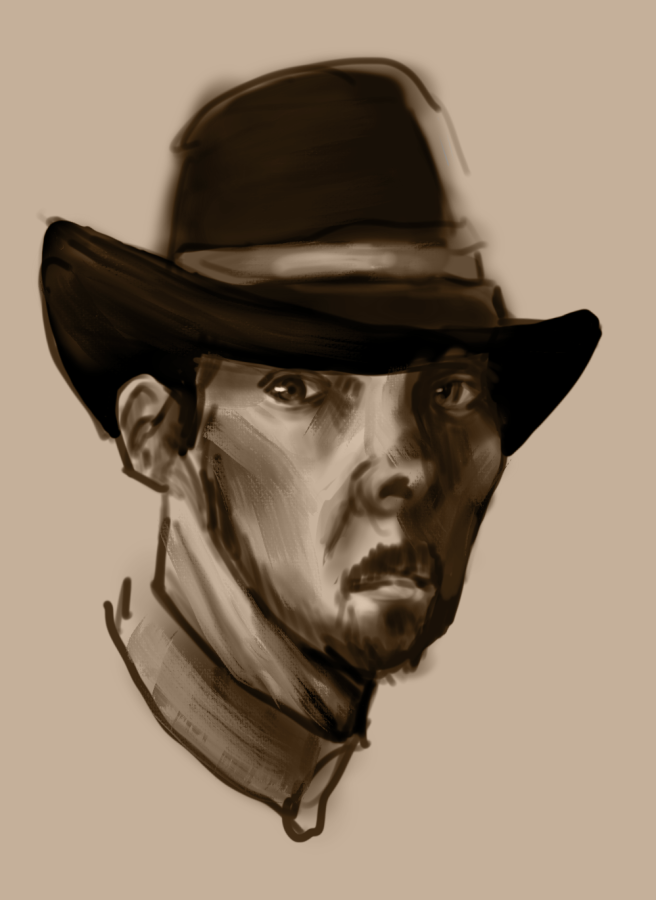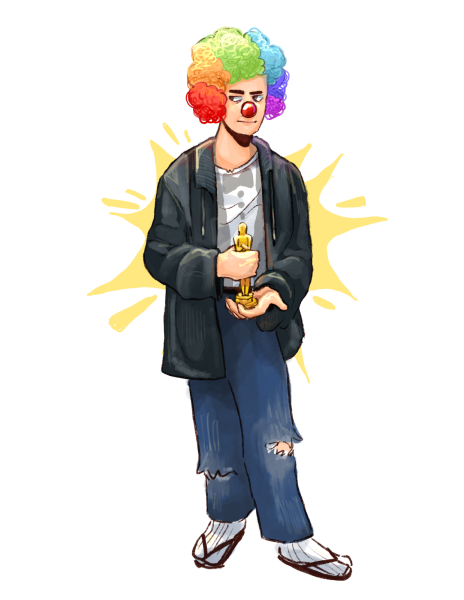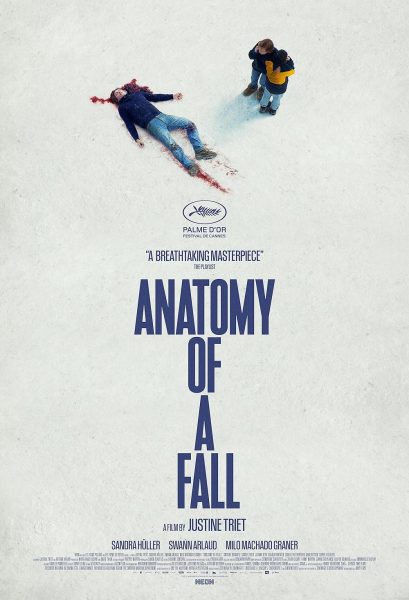The Power of the Dog: a gritty cowboy western? Looks can be deceiving
February 22, 2022
Zephyrus Arts and Entertainment Editor Hannah Owens Pierre examines each Oscar Best Picture nominee in a countdown to the awards ceremony on March 27
“The Power of the Dog” isn’t your typical Oscars movie. Best described as a Western psychological thriller, Jane Campion’s movie is dark, vulgar, and grimy—quite literally, as Benedict Cumberbatch spends almost the entire runtime covered in filth. But that hasn’t stopped it from dominating the awards ceremony, with a whopping 12 nominations.
It isn’t just recognized by the Oscars, either. Critics across the board have praised “The Power of the Dog,” and for good reason: Campion presents a compelling take on masculinity, sexuality, and deception, supported by an equally compelling cast.
The movie centers on Phil Burbank (Benedict Cumberbatch), a sadistic yet charismatic cowboy who responds with fury and torment when his more sensitive brother George (Jesse Simmons) marries the widowed Rose (Kirsten Dunst) and brings her and her son Peter (Kodi Smit-McPhee) to the family ranch.
“The Power of the Dog” is a character-driven film like no other. Phil is the embodiment of toxic masculinity. His every action is driven by the overpowering desire to show dominance, from humiliating those around him with relentless degrading remarks to castrating a bull with his bare hands, a graphic scene that perfectly displays his attitude towards others. Yet there is more to it than what meets the eye. Phil is a complex character full of hidden desires, insecurities, and loneliness.
When it comes to his relationship with Rose, the emphasis is on “toxic.” The manner in which he breaks down her psyche is as disturbing as it is fascinating. She tiptoes around the house like a woman haunted by ghostly presences, careful not to incite the anger of the beast. Dunst portrays her descent into madness masterfully, through harrowing expressions. The light is almost drained out of her life as the story progresses. But the best aspect of their interactions, and the rest of the film, is Campion’s elegant subtlety with filmmaking.
Campion relies on an attentive, serious audience. While general audiences will bemoan the film’s drawn-out pacing and elusive style, others will delight in those same qualities. Characters drop supposedly insignificant lines that add intense meaning to the story down the line. Simple scenes of backdrops bring crucial insight to the theme. This makes the ending all the more satisfying for the careful observer, yet all the more frustrating for the rest of the viewing party.
In many ways, “The Power of the Dog” is meant to be treated like a detective novel. Symbolism and unspoken mannerisms are crucial to its understanding. George’s empathetic nature is displayed through uncomfortable glances to the floor during his brother’s torments. Phil’s furrowed brow and scowling sneer show his anger reaching a breaking point when his power is threatened by his brother’s new family.
Equally delightful is the cinematography that supports Campion’s work. Though the film was shot in New Zealand, it still manages to capture the essence of the beautiful, and at times ominous, setting of 1920’s Montana. The tall, jagged mountains surrounding Burbank’s ranch can be seen as symbolic of walls Phil keeps up, constantly concealing his true desires.
His relationship with Peter, Rose’s son, and a character perhaps even more compelling than Phil, carefully breaks down some of those barriers. As the two grow closer, their interactions are always surrounded by suspense. Hidden motivations slowly reveal themselves to be deeper and more complex than initially thought, all while danger brews, enhanced by the unnerving energy of Johnny Greenwood’s score.
There are many lessons at the core of “The Power of the Dog,” but one which particularly resonants is that appearances can be deceiving. Don’t let the awards hype deceive you—“The Power is the Dog” is thought-provoking and fascinating in its own right. Jane Campion has once again shown her ability to delve into characters’ psyches and inner workings to reveal their deepest motivations, which often clash with their outer selves.











